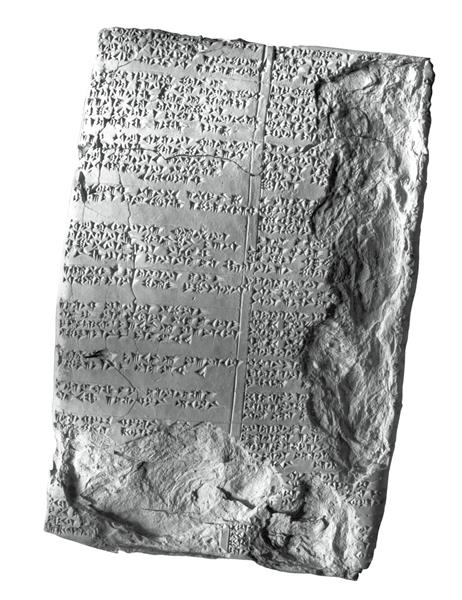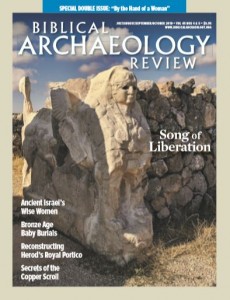Song of Liberation
Freedom in the Late Bronze Age

Liberty is conventionally thought to be a property of Western civilization. It is given dual genealogies, one biblical and the other Hellenic. The tale of how Israel was liberated from Egyptian domination is conjoined with the tale of how Athenians invented democracy to generate the myth opposing a free West to a despotic Orient. But this myth is an ideological construct, rather than an explanation informed by historical evidence. Ancient Near Eastern history discloses a more complex reality.
The most exciting new source is an epic poem that bears the ancient title Song of Liberation, originally composed in Hurrian around 1600 B.C.E. It was recorded in a bilingual Hurrian-Hittite edition, written in cuneiform on clay tablets around 1400 B.C.E. Fragments of this edition were excavated at the site of Hattusa, capital of the kingdom of Hatti, in 1983. Because the Hurrian language is poorly known and much of the text is lost, there are many uncertainties in the interpretation of what survives, especially where the Hittite translation is missing. Yet the extant pieces disclose an intriguing tale.1
The poem tells a story centering on the question of release from subjection within a political order in which citizens determined policy. One city, Ebla, had subjected the people of another city, Igingallish, and now the gods demand that Ebla let those people go. However, the senate of Ebla refuses, exercising its own liberty as a body of free men to deny liberty to the people of Igingallish, who serve them.
Already a library member? Log in here.
Institution user? Log in with your IP address.

